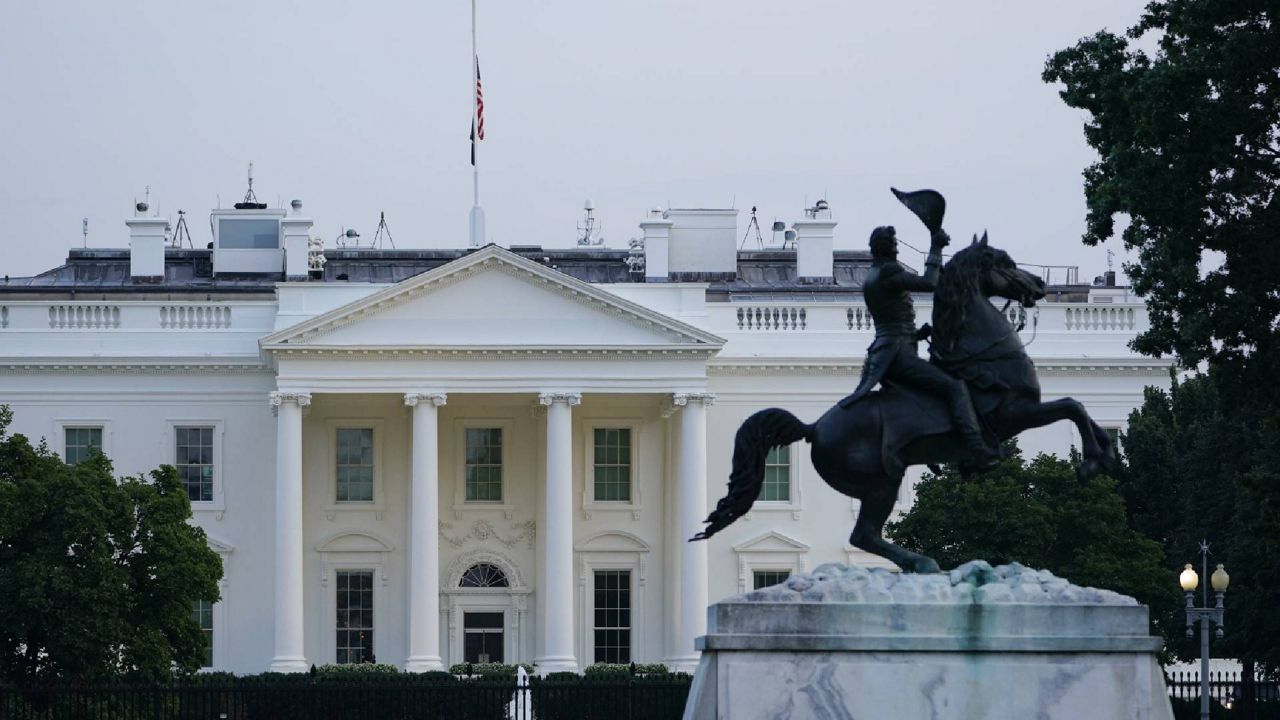WASHINGTON, D.C. — The White House is directly engaging with veterans on the fallout of the United States' exit from Afghanistan, including the need to aid Afghans who worked alongside U.S. troops — especially the thousands who were left behind when the evacuation ended and could now face direct retribution from the Taliban.
The conversation began in a virtual meeting Friday between senior administration officials and senior White House staff. Veteran representatives raised the issue of leaving those Afghan allies behind and the mental impact it could have on Americans who served with them, a topic that aides “were responsive” to, according to two people inside the meeting who spoke to Spectrum News.
It’s a conversation the groups hope will lead to one with the president himself, especially after he addressed them directly in his speech to close out the U.S. mission in Afghanistan.
“We need your help. And I’m looking forward to meeting with you,” President Biden said in remarks from the State Dining Room on Tuesday.
Friday’s initial meeting included Veterans Affairs Secretary Denis McDonough, senior adviser to the president Cedric Richmond and Deputy Homeland Security Adviser Josh Geltzer, plus more than 70 veteran and advocacy groups, according to the White House.
“They shared their frustration. They shared the hurt,” said Kris Goldsmith, who leads the coalition of veterans’ organizations that sent a letter to the president last week urging the safe evacuation of Afghan partners.
Goldsmith said the groups’ main goal was to highlight how veterans could suffer “moral injury” because the Afghans they worked alongside — interpreters, drivers, cultural advisers, and others — were abandoned and left to the Taliban’s possible revenge attacks.
A State Department official confirmed Wednesday that the majority of interpreters who were eligible for special visas due to their work for the U.S. were left behind when the evacuation ended Monday.
The number of allies still in Afghanistan is likely in the tens of thousands, as Spectrum News reported last week.
“Moral injury occurs when someone perpetrates, witnesses or fails to prevent something that deeply conflicts with their personal ethical and moral compass,” Goldsmith, who founded Higher Ground Veterans Advocacy, said.
“I left behind my interpreter in Iraq,” he added. “I don't know if he's alive or dead because I lost contact with him 15 years ago, and that's something I've got to live with for the rest of my life.”
Representatives from six different organizations spoke directly to officials in the Friday meeting, including people from advocacy groups like the Wounded Warriors Project, Veterans for American Ideals, Iraq and Afghanistan Veterans of America.
According to one person inside the meeting, White House officials understood how bad the situation was for interpreters still in Afghanistan, but they didn’t commit to tangible ways to fix it.
Top administration officials in recent days repeatedly said they would continue evacuating at-risk Afghans via diplomatic channels, but the details are unclear and uncertain under Taliban rule.
“The President has the utmost respect for those who served,” a White House official told Spectrum News. “And he knows how determined veterans of our military conflict in Afghanistan are to make sure that the Afghan allies who risked their lives to help our troops are evacuated to safety.”
Looking ahead, the same groups hope to next speak with Biden himself about the urgent need to help Afghan partners left behind.
“He is one of the most empathetic and genuine people in politics,” Goldsmith said. “We want to make sure that he understands on a personal and emotional level how necessary it is for him to directly engage us … in continuing this humanitarian work. Because it is going to prevent suffering.”
The White House did not comment when asked about a potential meeting with the president.
Both people who spoke to Spectrum News about Friday’s meeting described administration officials as “genuine” in their concern for veterans and the emotional impact of the tumultuous exit from Afghanistan.
The groups also raised the issue of mental health for not only veterans but also current service members and state department staff who worked on the Afghanistan withdrawal, especially in the context of leaving people behind.
“Everybody who lived it is haunted by the choices we had to make and by the people we were not able to help,” a State Department official told reporters Wednesday.
“There will be future conflicts,” Goldsmith said. “We're going to war somewhere else someday. We’ve got to do the work now.”
“We have been in regular contact and will continue to engage with a diverse set of veteran, military family, caregiver and survivor support groups,” a White House official told Spectrum News.



